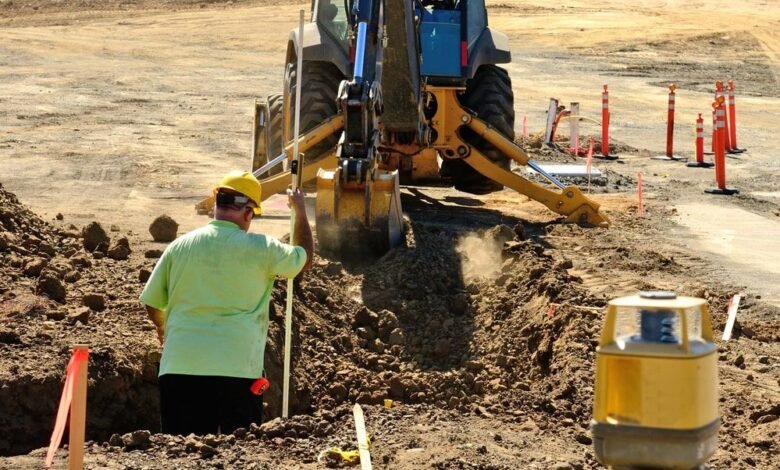Professional Excavation Services: The Foundation of Every Successful Project

Excavation is the starting point for most construction, landscaping, and civil works projects. It is the process of preparing land for building, installing utilities, creating drainage systems, or reshaping terrain for practical or aesthetic purposes. Far from being just a matter of digging holes, professional excavation involves a strategic combination of engineering knowledge, specialised equipment, safety practices, and compliance with local regulations.
Whether you’re preparing a residential block for a new home, excavating a commercial development site, or shaping land for landscaping, the quality of the excavation work will determine the success of everything built upon it. A poor excavation can result in structural instability, drainage issues, or costly repairs in the future. That’s why choosing the right excavation company is crucial.
Understanding What Excavation Involves
At its core, excavation is about removing, relocating, and shaping soil, rock, and other materials to prepare the ground for construction or other uses. However, this simple definition hides the complexity involved in the process. Professional excavation typically includes:
- Site clearing – Removing vegetation, debris, and any existing structures or surfaces.
- Bulk earthworks – Moving large quantities of soil to achieve the correct elevation or slope.
- Trenching – Creating narrow, deep channels for utilities like water, gas, and electricity.
- Rock excavation – Breaking through sandstone, shale, or other solid materials.
- Drainage preparation – Shaping land and installing systems for effective water flow.
- Soil compaction – Increasing ground stability to prevent future subsidence.
- Spoil removal – Transporting and disposing of excess materials according to regulations.
Each of these steps requires skilled operators, precise machinery, and a strong understanding of soil composition, load-bearing capacity, and environmental impact.
See also: Bathroom Remodel in Houston: Top Trends, Costs and Expert Tips
Types of Excavation Services
Residential Excavation
For residential projects, excavation prepares a site for building foundations, driveways, retaining walls, swimming pools, and landscaping. It often involves removing old concrete, clearing vegetation, levelling uneven land, and digging trenches for plumbing and electrical lines. Tight-access excavation is a common challenge in suburban areas, requiring smaller equipment and precise manoeuvring.
Commercial and Industrial Excavation
Large-scale developments such as warehouses, shopping centres, and industrial plants require extensive excavation work. This can include deep foundation digs, bulk earthworks for large parking areas, and drainage infrastructure. Because these projects are bigger and involve more complex engineering, they require a high level of project management, larger machinery, and strict adherence to workplace health and safety regulations.
Utility and Service Line Trenching
Trenching is a specialised excavation service for installing underground utilities like water mains, gas lines, communication cables, and stormwater drains. The process demands accuracy in depth and alignment, as well as safety measures to prevent collapse or damage to nearby infrastructure.
Rock Excavation
Some sites, particularly in regions like Campbelltown and surrounding areas, have solid sandstone or rocky ground. This requires rock-breaking equipment, such as hydraulic hammers, rock saws, or even controlled blasting. Rock excavation is more time-intensive and costly than soil excavation, making accurate planning essential.
Retaining Wall Excavation
Retaining walls need strong, stable footings to withstand soil pressure. Excavation for these footings must be precise in both depth and width, and drainage systems must be installed to prevent water buildup behind the wall.
Drainage and Stormwater Excavation
Proper drainage is vital to protect structures and landscapes from flooding or erosion. This involves excavating for stormwater pits, channels, and swales, ensuring that water is directed safely away from buildings and toward approved discharge points.
Pool Excavation
Pool excavation is one of the more delicate forms of earthmoving. The dig must match the pool’s exact shape and depth specifications, and the surrounding soil conditions must be considered to ensure structural stability.
The Excavation Process: Step-by-Step
Professional excavation companies follow a structured process to ensure safety, efficiency, and quality results.
1. Site Inspection and Assessment
The contractor evaluates the site to determine soil type, terrain, existing infrastructure, and access points. Underground utilities are identified to prevent accidental damage. This stage often involves a “Dial Before You Dig” check in Australia to ensure compliance.
2. Planning and Permits
For certain excavation projects, council permits or approvals are required, especially for large-scale works, tree removal, or significant changes to drainage patterns. The contractor prepares safety documentation, such as Safe Work Method Statements (SWMS).
3. Site Clearing
All vegetation, stumps, rubble, and existing structures that interfere with the planned works are removed. This ensures a clean and safe workspace.
4. Excavation and Earthmoving
Using excavators, bulldozers, skid steers, and other machinery, the contractor removes soil and shapes the land according to project specifications. The depth, slope, and compaction are carefully controlled to meet engineering requirements.
5. Specialised Excavation Works
This may include trenching for utilities, rock breaking, or creating drainage channels. Special equipment and methods are used depending on site conditions.
6. Spoil Removal
Excess soil and rock are transported off-site. Some materials can be reused for backfill, while others must be disposed of at licensed facilities.
7. Final Grading and Compaction
The last stage involves fine-tuning the site’s levels and compacting the soil to ensure it remains stable over time. This step is critical for preventing settlement or shifting after construction begins.
Factors That Influence Excavation Work
Soil Type and Stability
Clay, sand, loam, and rock each require different excavation techniques and equipment. Clay, for instance, can be difficult to work with when wet, while sandy soils require stabilisation to prevent collapse.
Terrain and Slope
Steep or uneven terrain may require stepped excavation or retaining walls. This adds complexity and cost to the project.
Weather Conditions
Heavy rain can delay excavation, cause soil instability, and lead to erosion. Planning the work during drier months reduces these risks.
Access Restrictions
Tight driveways, neighbouring structures, and overhead power lines can limit machinery access. Contractors may use smaller machines or crane-lifted equipment to overcome these challenges.
Local Regulations
In Australia, excavation must comply with state and local council requirements regarding erosion control, stormwater management, and environmental protection.
Choosing the Right Excavation Company
Selecting the right contractor can make or break your project’s success. Key considerations include:
- Licensing and Insurance – Ensure they hold the required trade licences and carry both public liability and workers’ compensation insurance.
- Experience and Local Knowledge – A contractor familiar with the terrain and regulations in your area will work more efficiently and avoid compliance issues.
- Range of Equipment – The company should have machinery suited to your project, from mini excavators to large earthmovers.
- Safety Standards – They should have documented safety protocols and trained operators.
- Reputation – Positive client reviews, testimonials, and examples of past work show reliability.
- Transparent Pricing – Look for itemised quotes that clearly outline what’s included.
Cost of Excavation
Excavation costs are influenced by:
- Material Type – Rock is harder and more expensive to remove than soil.
- Volume of Material – More material means higher costs.
- Site Access – Limited access can require specialised machinery, increasing costs.
- Disposal Fees – Some spoil must be disposed of at licensed facilities.
- Additional Services – Drainage works, retaining walls, or erosion control add to the total.
Safety and Compliance in Excavation
Excavation is classed as high-risk construction work in Australia. Safety measures include:
- Shoring or battering trenches to prevent collapses.
- Identifying underground services before digging.
- Dust and noise control measures to protect workers and nearby residents.
- Erosion and sediment control to prevent environmental damage.
- Clear site signage to keep unauthorised people away from hazards.
The Benefits of Hiring a Local Expert
Working with a local excavation company offers several advantages:
- Faster Council Approvals – They understand local requirements and can handle permit applications efficiently.
- Accurate Cost Estimates – Local experience helps them anticipate challenges like soil type or drainage issues.
- Supplier Connections – They often have established relationships with local quarries, tip sites, and equipment hire companies.
- Quick Response Times – Being nearby allows them to start sooner and handle urgent requests.
Steps to a Smooth Excavation Project
- Engage Your Contractor Early – Early planning helps identify potential issues before construction starts.
- Confirm Site Access – Ensure machinery can reach the excavation area without obstacles.
- Plan for Weather – Schedule work during seasons with fewer rain delays.
- Allow for Contingencies – Set aside a budget for unexpected rock, buried debris, or service relocations.
- Maintain Clear Communication – Regular updates between you and your contractor keep the project on track.
Real-World Applications of Excavation
- Residential Builds – Creating a level building pad and service trenches.
- Commercial Projects – Bulk earthworks for car parks, loading docks, and industrial floors.
- Landscaping – Shaping land for gardens, water features, and retaining walls.
- Civil Works – Road construction, drainage channels, and public infrastructure.
- Pool Installation – Digging and shaping for in-ground pools.
Final Thoughts
Excavation is far more than just digging dirt. It’s a highly skilled trade that combines engineering precision, specialised equipment, and safety expertise. A well-executed excavation ensures that your project — whether it’s a new home, a commercial development, or a landscaping overhaul — starts on solid ground.
By hiring an experienced, well-equipped, and safety-conscious excavation company, you protect your investment and lay the groundwork for long-term success. Whether you’re in Campbelltown or any other part of Australia, the key is choosing a professional who understands the local landscape, regulations, and construction standards.




